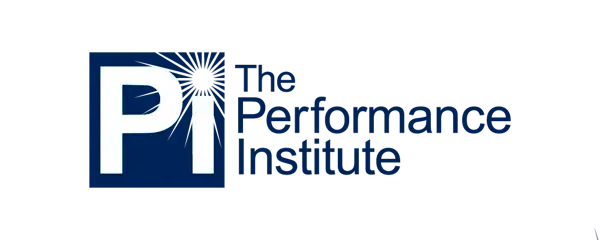Here you can find a complete guide to CPE credits: what are they? Why are they important? And how can you get them? Government Performance University by the Performance Institute is your 1-stop-shop for CPE-accredited courses and trainings. Check out our upcoming courses.
What are CPE credits?
Imagine a corporate world without continuous improvement, where the way things were done in the 80s still applies today. The recycling of information would not only make business excruciatingly unbearable but also highly inefficient. The same goes for government! CPE credits exist to bridge this gap and ensure that professionals in government (and other sectors) remain up to date, competent, and well versed in all changes related to their field.
In that bated breath, let us exhaustively explore what CPE credits are. What does CPE even stand for? CPE is an abbreviation for Continuous Professional Education.
According to the American Institute of Certified Public Accountants (AICPA), the accounting field, like many others, is dynamic and ever-evolving, calling for continuous learning and improvement. To effectively offer a financial opinion, Certified Public Accountants unarguably need to regularly hone their skills to remain knowledgeable and relevant in their work. This is where CPE credits come in.
Two bodies govern CPE in the United States:
- The National Association of State Boards of Accountancy (NASBA) tasked with refining accounting boards' efficiency.
- The American Institute of Certified Public Accountants (AICPA) oversees the CPA as a profession by setting the necessary standards and managing the CPA examinations.
Why are CPE credits important?
CPE credits are essential because they improve accountants' know-how by keeping them updated on new developments in their professional line. Since different states have different accountants requirements, accountants need to keep checking and adhering to those requirements. Here is a link from NASBA showing the guidelines for all states.
But how do CPE credits work?
The AICPA divulges that certified accountants must, for every three years, take a minimum of 120 hours of CPE. How easy is that, only five days of learning in three years! You will agree that this is quite manageable compared to the arduously long duration taken to qualify to be a CPA, or even more, to earn an accounting degree! However, note that CPE credits complement CPA; they don’t substitute CPA qualification.
CPE programs
While taking CPE courses, you should make sure that you enroll for programs offered by professionals who are seasoned enough to share insights into the different accounting areas.
As highlighted by AICPA, the topics covered should include technical areas such as accounting and reporting, audit and assurance, economics, and management accounting. Non-technical areas such as ethics and computer software applications are also critical in the accounting profession; hence they must be included in your CPE course. The levels of progression include basic, for beginners, intermediate and advanced.
There is no limit to the number of CPE credits you should earn per reporting period. You can take the programs in any way that is convenient for you, ranging from attending university classes, online learning, in-house training, etc. There are no specified topics that you should study, as long as they are official programs that will improve your know-how and, ultimately, your professional performance. That notwithstanding, developing a learning schedule that identifies your knowledge gap in different topics will help you be intentional as you undertake the programs to add value to your work.
CPE programs documentation
Upon completing the programs, it is advisable to keep the documentation with you should you need it later. The documentation process for AICPA members, as spelled out by the body, should strictly detail:
- The program sponsor
- Program Title/information
- The date when the program was taken
- Residence
- The number of hours you took to complete the program in question.
AICPA observes that all CPAs have an individual responsibility to ensure adherence with all necessary CPE requirements, laws, and regulations of state licensing bodies and other relevant organizations or bodies.
How many CPE credits do you need?
If you take the recommended 120 hours for every three-year reporting period, the credits you will have earned are as follows:
- 120 hours × 60 minutes (to convert the hours into minutes) = 7200 minutes.
- Remember that 50 minutes of study = 1 CPE credit.
- Therefore: 7200 minutes ÷ 50 minutes = 144 CPE credits.
- Accountants are required to have at least 144 CPE credits every three years.
This means that if you aim to earn 48 CPE credits per year, you will meet the required tally by the third year.
How are CPE credits calculated?
The AICPA notes that 50 minutes of study on any program equal to 1 CPE credit.
50 minutes = I CPE credit.
To calculate CPE credits for programs that do not indicate the course duration, divide the number of minutes spent on the program by 50. Therefore, if you spent 50 minutes:
50 minutes ÷ 50 = 1 hour (remember to round off your answer to the nearest whole hour).
If you are taking your CPE programs in a university or college, AICPA has provided the following method of credits calculation:
1-semester hour= 15 CPE hours (18 CPE credits)
1 quarter hour= 10 CPE hours (12 CPE credits)
Do CPE credits expire?
Because the process of earning CPE credits is never-ending, and seeing as the overall goal is to add to CPAs already existing know-how, CPE credits do not expire per se. What happens is that you progress from beginner level to advanced level, you solidify your knowledge in a certain program. Even as you move from one level to another, new information on the different programs will always emerge.
The fact that you must earn a minimum of 144 credits on a triennial basis also encourages you to keep sharpening your skills and remain conversant with all the emerging changes.
How can you earn your CPE Credits?
As discussed earlier, there are different ways of earning CPE credits. These include attending virtual learning (e-learning platforms), physical classes (university or college), conferences and workshops, self-study with guidance from a CPE accredited sponsor, among others. Government Performance Summit, an annual event held by Performance institute, is another excellent way to earn CPE credits. In the spirit of adapting to the new normal, Performance Institute has introduced Government Performance University, an online-based university which offers CPE courses among other management programs.
It is crucial to note that only programs in the approved curriculum qualify for CPE credits are recognized. The requirements also vary from state to state, so it is imperative to know the state requirements. It is advisable always to check the NASBA website and the AICPA website for members to verify the list of programs to ensure that you are on course.
To sum up, CPE credits are essential for all CPAs keen on sharpening their skill set. While earning CPE credits is essential, continuous improvement in your field is a critical motivating. By upholding integrity and self-discipline, you end up widening your information scope and earning the required credits in a good time.
For 20 years, Performance Institute has trained thousands of professionals and awarded CPE credits. Both NASBA and ICPAK credit us as one of the best trainers. We offer CPE courses as well as other associate, professional and advanced certifications. Check out our training page for more detail.













.jpg?height=500&name=man-showing-distress-3777572%20(1).jpg)